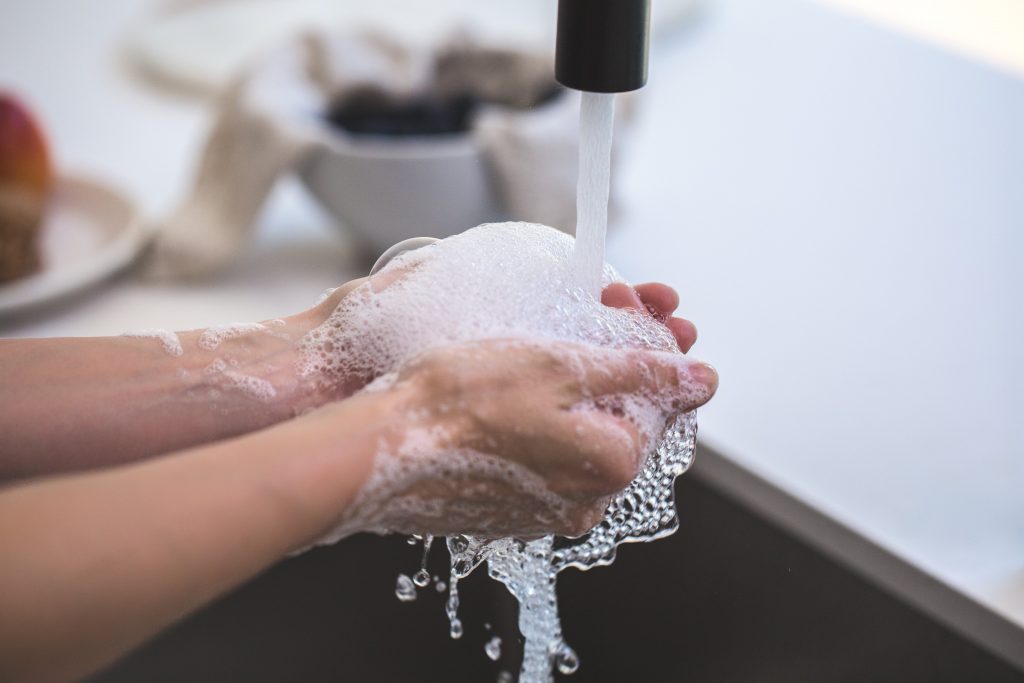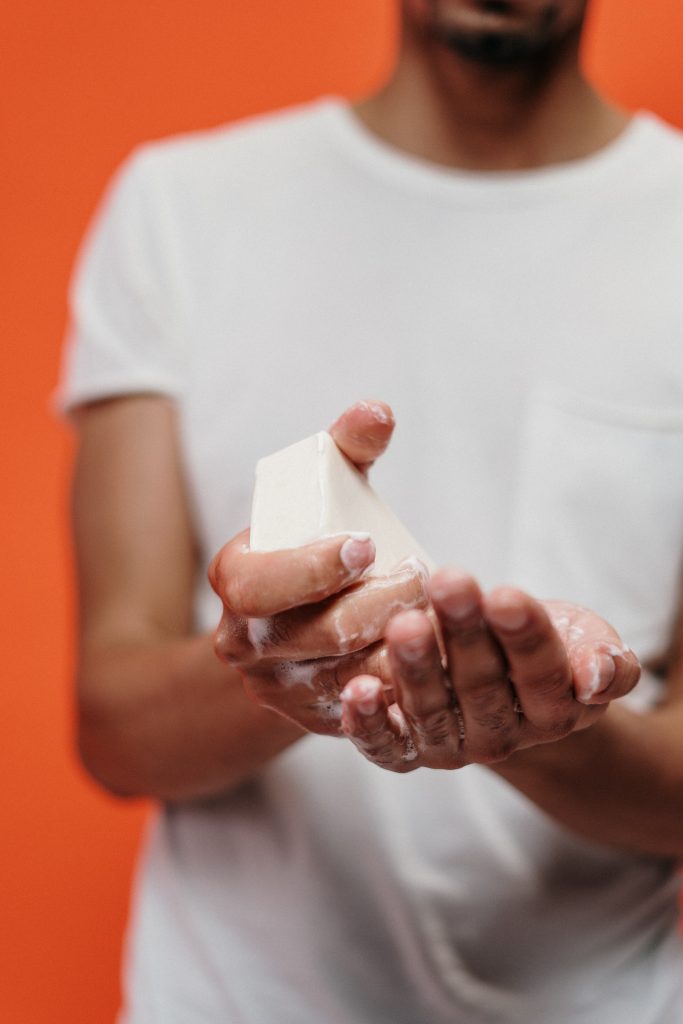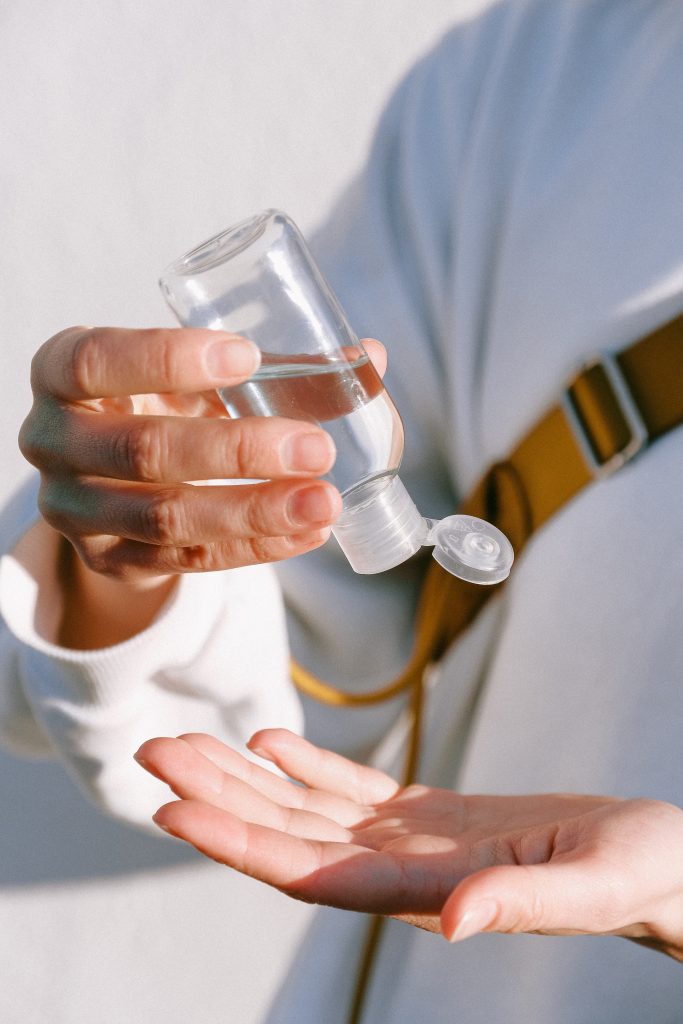

When it comes to staying healthy, it helps to remember your mom’s advice to, “Wash your hands.” And the US Centers for Disease Control and Prevention backs up your mom. They maintain that, “Keeping hands clean is one of the most important steps we can take to avoid getting sick and spreading germs to others.” Let’s explore why the CDC’s statement is true.
First, consider these germ facts, courtesy of Tri-County Health Care in Minnesota:
• There are between 2 and 10 million bacteria on your fingertips and elbows.
• The number of germs on your fingertips doubles after using the toilet.
• One germ can multiply into more than 8 million germs in one day.
• Nearly 80 percent of illness-causing germs are spread by your hands.
• Germs can survive for up to three hours on your hands.
Here’s another fact: Feces from people or animals, which can get on your hands after you use the toilet, change a diaper, or handle raw meat or pet waste, is a huge source of germs, including Salmonella, E. coli and norovirus. These germs cause diarrhea and can also spread certain respiratory infections such as adenovirus and hand-foot-mouth disease.
According to the CDC, a single gram of human feces, which is about the weight of a paper clip, can contain one trillion germs! If you get these germs on your hands and you don’t wash them off, you can pass them to other people and make them sick. Washing your hands with soap and water clears these germs from your hands and prevents their transmission to others.
In fact, research has shown that proper handwashing can prevent about 30 percent of diarrhea-related illnesses and about 20 percent of respiratory infections, such as colds and flu.
In addition to limiting the transfer of germs to other people, there are other great benefits to keeping your hands clean. It keeps your workplace healthy, decreases the number of food-borne illnesses and keeps kids healthier. It also helps combat the rise in antibiotic resistance because it reduces viral infections that are often incorrectly treated with antibiotics, which causes the germs to become resistant to the antibiotics.
In addition to the millions of bacteria that accumulate on your hands every day, many illness-causing viruses find a home on your hands as well, and frequent handwashing remains the number one tip for preventing the spread of the coronavirus and COVID-19. But handwashing must be done properly, using soap and water.
Proper handwashing requires five simple steps:
• Wet: Put both your hands under clean running water.
• Lather: Apply a generous amount of soap to the inside and back of your hands, as well as your fingertips. Wash for at least 20 seconds. Skip the antibacterial soap. Studies show it’s not any more effective at killing germs than regular soap.
• Scrub: Rub both hands together and move your fingertips around both hands and up to your wrists. You don’t need a scrub brush, and you don’t need to make harsh, scrubbing movements.
• Rinse: Return both hands to the running water and gently wash away the soap.
• Dry: Completely dry the water from both hands.
If you don’t have ready access to soap and water, you can clean your hands using a hand sanitizer. Make sure it contains at least 60 percent alcohol. Sanitizers that contain ethanol alcohol and isopropanol alcohol are acceptable types, but those containing methanol have been recalled by the FDA after reports of adverse and even serious side effects.
When using a hand sanitizer, apply a generous drop to the palm of your hand, enough to cover all surfaces of your hands. Rub the sanitizer across both hands front and back, and your fingertips, until they feel dry,
Remember, hand sanitizers are good in a pinch, but they shouldn’t replace frequent handwashing as the primary method for keeping your hands clean.
We know that frequent, proper handwashing can protect you from COVID-19, as well as from respiratory infections such as colds, flu and even pneumonia. It can also protect against gastrointestinal infections that cause diarrhea. And we can pass on the germs that cause these disorders to others, even if we’re not sick. For many older people, babies and children, and those who have weakened immune systems, these disorders can be deadly.
So what the CDC maintains is definitely true. Keeping our hands clean protects us from getting sick as well as from passing on potentially deadly germs to others. It’s a small price to pay for a healthier life and community, don’t you think?






Leave a Reply